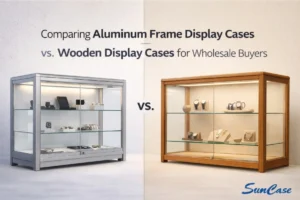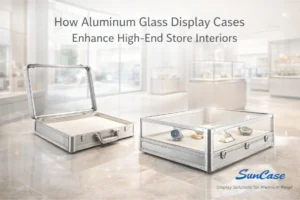How to Choose the Right Aluminum Case?

Aluminum cases provide rugged, lightweight protection for sensitive equipment and components. When properly chosen, they safeguard internals while allowing for heat dissipation and access. Different designs suit various applications – here’s a run-through of picking the optimal aluminum case for your needs.
Key Factors to Consider:
- Size to fit internal components
- Material thickness and strength
- Mounting provisions and hardware
- Thermal properties and sealing
Aluminum’s strength, workability, and corrosion resistance make it an ideal protective enclosure material. Cases come in different sizes, shapes, series alloys, and fabrication methods. Navigating these options when selecting one for your application may seem daunting. But focusing on key requirements makes the task manageable.
Selecting an Aluminum Case – Factors to Consider
Here are a few important things to consider before investing your money into an aluminum case with foam:
- Consider Frequent Use Cases
Think through your regular usage scenarios as well. Frequency of transport matters when selecting case features.
For example, do you need lifting handles and smooth-gliding wheels to easily maneuver the loaded case? Or will it mostly reside in fixed storage?
Frequent fliers may want TSA-approved latches for inspection access during airport screening. And military or scientific uses often demand specialty standards compliance for added protection assurances.
- Materials & Construction Variables
After payloads and use cases, consider materials and construction:
- Waterproof aluminum case and shockproof aluminum case resist corrosion and exterior impacts far better than plastic.
- Thick, rugged sidewalls and reinforced corners provide max integrity.
- O-ring seals and gaskets block moisture, dust and chemicals from infiltrating the tight closure.
Some cases even eliminate seams with injection molding for extreme watertightness. Other variables like pressure relief valves prevent interior vacuum damage while sturdy closures deter tampering. Seek 3-point latches for enhanced security.
- Storage Customization
Well-designed interior storage ensures payloads stay organized and secured in transit. Padded divider panels with adjustable Velcro positioning cater to odd-shaped contents. Intelligent compartmentalization prevents item migration and collisions.
And options like power or charging ports enable enclosed devices to remain operational on the go. Active heating and cooling maintains optimal temperature ranges for sensitive gear or specimens.
- The Premium Details
Beyond core construction, premium details set professional-grade aluminum storage box apart:
- RFID blocking prevents remote scanning of contents when closed
- Built-in locks or lock holes enable failsafe security measures
- Ergonomic handles reduce strain from heavy payloads
- Custom branding conveys professionalism
Conclusion
With key criteria defined, you can now screen case sizes and options to determine an appropriate match. Aluminum cases strike an ideal balance of protection, weight savings and cost when applied properly. Paying attention to clearance, hardware, sealing and thermal needs when selecting one will ensure your equipment enjoys safe operation for years to come.
For expert guidance in identifying durable aluminum enclosures optimized for your application, turn to the pros at SUN Case Supply. Their engineers will help pinpoint just what you need to achieve reliability objectives and total cost control. Get started by contacting their team today.



